Small successes give Kurdish rebels hope
USA TODAY
April 30, 1991, Tuesday, FINAL EDITION
BYLINE: Tom Squitieri
SECTION: NEWS; Pg. 4A
LENGTH: 726 words
DATELINE: AZMER MOUNTAIN, Kurdish-controlled Iraq
Dawn broke clear and cool for the pesh mergas, Kurdish for ”those who face death” – freedom fighters here.
For the third straight day, Iraqi troops had attempted and failed to take nearby Azez Mountain, which dominates the region.
”We control this mountain, we control this road. Soon, we will again control the city,” said Azasd Karadaky, who leads the Kurdish force here.
The Kurds look down on Sulaymaniyah, a city they held briefly a few weeks ago, before Saddam Hussein’s tanks turned the tide in the lowland.
But Iraqi troops have been unable to retake the mountain. The Kurds fire shells at will.
During a recent, three-day battle for this mountain, 200 Iraqi tanks charged unsuccessfully. Rebel artillery destroyed them. Tank carcasses remain on the edge of the cliffs.
Now the Kurds ring the area, watching nervous Iraqi soldiers through binoculars and making bets on how many of the enemy will die in the next attempt to take the high mountain.
For two weeks, members of the Kurdish Democratic Party, the largest rebel group, have been slowly securing the back roads and mountain outposts of eastern Iraq, part of what they hope will one day be an autonomous Kurdistan.
After weeks of dying on freezing, snow-covered mountains, the Kurds are regrouping as the weather breaks, enjoying the cover that the heightened U.S. presence provides.
”We are a peaceful nation, we don’t want to fight,” said Firyad Bazani.
”But most of the Kurdish villages have been destroyed and the only way our voice can get to the world is by (action).”
The Kurds’ limited military successes – coupled with new talks going on with Baghdad regarding autonomy – have given them hope their 25-year fight for self-preservation may soon be over.
They surround large cities like Erbil, Kirkuk and Sulaymaniyah. They control the back roads and the remains of the smaller villages, like Arbat, Chawarla and Penywin.
By securing what’s left of these villages – many of them leveled in 1988 by Saddam – Kurdish fighters have opened the door slightly to optimism. All this action is south of the 36th parallel, the line the United States has drawn across northern Iraq.
North of here, the United States has forbidden Iraq to deploy its military forces.
Below here, where the bulk of refugees remain huddled in camps, it remains a free-fire zone.
Said Aahman Husaim, ”The U.S. will go into Kuwait to help 70,000. Why will it not go into Kurdistan to help 4 million people also?
”If they (the refugees) return to the cities, it is only because they are hungry or sick.”
Kept from creating their own homeland, the Kurds now have had a brief taste of freedom and said they are not inclined to give it up again.
Sirway Barzani, nephew of Masoud Barzani, leader of the Kurdish Democratic Party, said the rebellion will never end now. ”They can kill us, but they can’t kill the idea of Kurdistan. Even if there is only one Kurd left alive, the idea of Kurdistan will live.”
Three days and three nights on patrol with the pesh mergas showed the rebels in control of a strip of the border some 20 miles deep at points.
They confidently sped down bumpy roads in vehicles that must be hot-wired to start, and rapidly trek up narrow, mountain paths, their backs laden with ammunition and supplies.
At outpost Gola, the rebels are a mixed lot that includes former doctors and laborers, some of them called home from abroad to join the fight. The rich have razor style haircuts; the poor are shorn of all but a stubble on their heads. Most are dressed in Kurdish-style pantaloons and all carry at least three weapons.
Breakfast is goat cheese and mashed apricots. Dinner is canned fish, eggs and bread.
Each day they examine maps to update Iraqi troop movements, and wait to hear radio broadcasts of the latest world reaction to their struggle. The radio is the rebels’ link to the outside world and all is quiet during the broadcasts, save for the chirping of birds in the trees and the quacking of ducks in the pond.
As a gesture toward the peace now in effect, these Kurds recently released Iraqi prisoners they were holding at Chouinta, including a three-star general.
”Now he (Saddam) has 100,000 troops in a battle in the south,” Barzani said. ”They bring the troops to the south now. If it is a battle in the north, they bring them here.”










